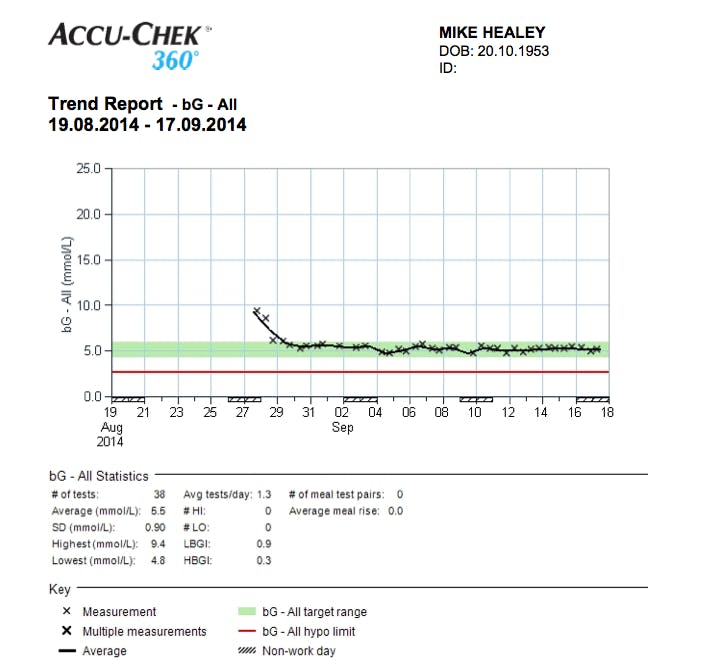“I was told I was “diabetic” and had to go on drugs to control it”
I just got an email from Mike, who was told he was diabetic and that he had to go on drugs to control it.
However, he chose another path, the LCHF diet path. Here’s his short story:
The Email
Hi,
I was told after two blood tests that I was “diabetic” and had to go on drugs to control it.
I declined the drugs, bought a blood tester and after the shock of seeing 169 mg/dl (9.4 mmol/l) went on a very low-carb, high-fat diet. 21 days in and I have lost 16 lbs (7 kg) and my BG is normal. See attached trend report.
Very many thanks for your web site.
Mike Healey
Comment
Congratulations on stabilizing your blood sugar and on losing weight as a bonus! Keep up the good work!
More
Diabetes – How to Normalize Your Blood Sugar
The Doctor: “Have You Started an LCHF Diet, Or Something?”
“Hello LCHF – Goodbye Type 2 Diabetes”
More health and weight success stories
Share your story
Do you have a success story you want to share? Send your information, plus before and after photos, to success@dietdoctor.com. It would also be greatly appreciated if you shared what you eat in a typical day, whether you fast etc. More information:
Share your story!